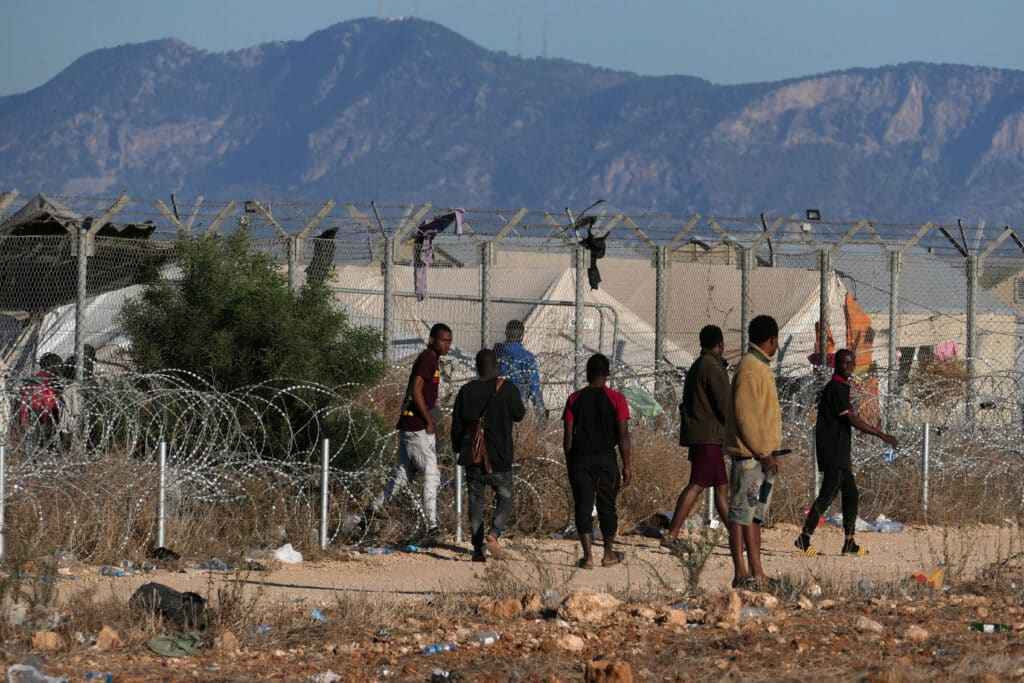The Cypriot government on Monday raised the alarm over apparent links between universities in the north and people smuggling.
The interior and education ministries filed a joint complaint to the European Association for Quality Assurance in Higher Education (Enqa) citing 188 cases of third country nationals who had arrived in the north on student visas issued by the Turkish Cypriot authorities before crossing to the Republic and subsequently claiming asylum.
They said many of the people had enrolled in the north as “virtual students”, and that they had followed “guidance”, which the government believes may be an indication of people smuggling.
Universities in the north are known to employ agents abroad who market the universities to students in third countries with the aim of encouraging them to study in the north.
The government said on Monday afternoon that Enqa has begun to investigate the universities mentioned by the 188 people whose cases had been cited in the government’s complaint, and their possible links to people smuggling.
They added that last year, they had engaged in an awareness campaign on social media entitled “Let’s talk truth about Cyprus”, which aimed to discourage potential asylum seekers from travelling to the island.
The issue of asylum seekers crossing into the Republic from the north has been a hot topic in recent weeks, with the United Nations High Commissioner for Refugees (UNCHR) stating that there are 31 asylum seekers stranded in the buffer zone as the Republic refuses to allow them to cross.
The migrants’ presence has left the Cypriot government at loggerheads with the UN, with the latter accusing the former of violating international law, and President Nikos Christodoulides insisting that Cyprus “will not take lectures” on the issue.
Last year, the north’s Human Rights Platform (IHP) released a report saying the Turkish Cypriot authorities “fall short” of implementing their obligations regarding the prevention of human trafficking, making specific reference to the north’s education sector.
The report said the north’s authorities “were informed on several occasions [of] the current status quo in relation to higher education, namely the increase in the number of universities in an uncontrolled way, the use of agencies that convince students with false promises and the abuse of the student visa regulations”.
It also pointed out the ease with which third country nationals can obtain student visas in the north. At present, they need only to present an acceptance letter to police at the north’s airport, seaports, or crossing points to the Republic to be issued a student visa.
The report adds, “when students arrive to the territory, there is no monitoring mechanism to follow their status here, whether they attend their universities, or if they find themselves in other dangerous or illegal situations, such as human trafficking.”
In addition, the government’s complaint to Enqa comes at a time when the north’s higher education sector finds itself in turmoil with regard to the handing out of “fake diplomas”.
Multiple high-profile figures, including former ‘ministers’ have been arrested in relation to the scandal, with the Turkish Cypriot police having found that degrees were being handed out to people within days or in some cases hours of people registering as students.
Former ‘education minister’ Kemal Durust was one of the many arrested, having allegedly fraudulently obtained thousands of euros by sending fake invoices to Cyprus Health and Social Sciences University in Morphou, on which investigations have centred.
Opposition party CTP ‘MP’ Sami Ozuslu in March accused Durust of having signed off on the opening of 16 universities. He added that a total of 38 universities are currently operational in the north, of which 28 opened since 2011.
By contrast, in the Republic, there are ten.






Click here to change your cookie preferences